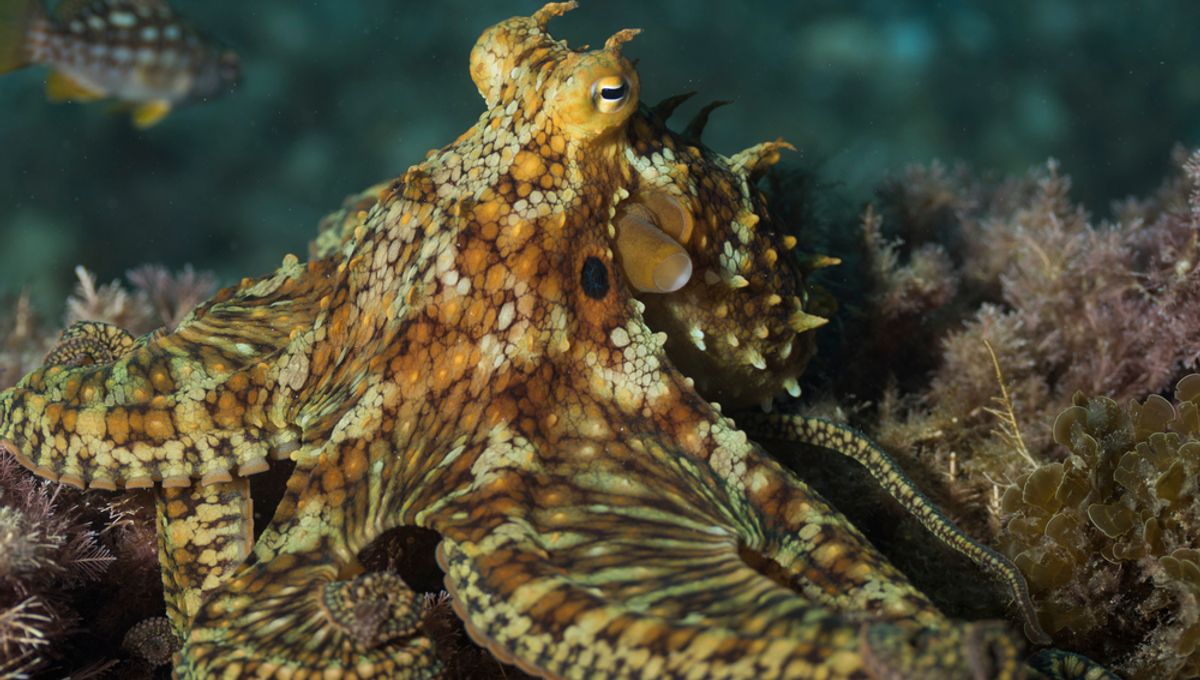
The chromosomes in cephalopods that determine whether they will be male or female have been in use for at least 248 million years – longer than those for any other animal equivalent we have found. The longevity contrasts with other animal classes, which change systems far more frequently.
Not all animals use chromosomes to determine sex. Some do it using the temperature at which their eggs are incubated, creating serious problems in a warming world. Even for those that do use chromosomes, the process is not always as fixed as might be expected, as can be seen from the fact the human Y chromosome is disappearing.
Consequently, it’s not safe to assume that as things are done now, they have been in the past, but Dr Andrew Kern of the University of Oregon and colleagues have found one example of extraordinary stability. Their results have been posted in a preprint that has not yet passed peer review. “We stumbled upon probably the oldest animal sex chromosome known to date,” Kern told Nature News. “Sex determination in cephalopods, such as squids and octopi, was a mystery – we found the first evidence that genes are in any way involved.”
Until recently, cephalopod sex determination was a mystery; it was not even known if they used chromosomes or some environmental factor to determine sex. The first cephalopod genome was not sequenced until 2015, by which time a great many mammals had already been done. The genome was of a male two-spot octopus (Octopus bimaculoides), which couldn’t answer the sex question without a female counterpart.
It’s a testimony to how low on the priority list marine creatures are that it’s taken another nine years for anyone to get around to giving a female O. bimaculoides the same treatment. Now, Kern and colleagues have shared the results of the female Californian two-spot octopus genome.
The male two-spot has 29 pairs of chromosomes (no, having six more than humans does not mean one for each extra arm). However, the female had only one copy of chromosome 17 rather than two. Expanding the sample confirmed the team had not accidentally picked an unusual specimen – female O. bimaculoides only have one copy of chromosome 17.
If this wasn’t a big enough hint that this is the octopus’s sex chromosome, some of the proteins coded for by genes on chromosome 17 resembled those in human sperm and other parts of the mammalian reproductive system.
While in mammals (monotremes aside) it is females that have two copies of the same sex chromosome – the X – birds, certain reptiles, and some insects reverse this. In these animals, males get two Z chromosomes, while females get a Z and a W.
“It very much looked like we were looking at a Z chromosome in O. bimaculoides,” Kern said, but there was no W to go with it in females. Such a system is not unprecedented – butterflies and moths have something similar, as do some plants. Geneticists refer to it as ZO sex determination.
The question the Oregon University team wanted to answer was whether this was something specific to two-spot octopuses, and if not, how far it is spread through the cephalopod class. They tested three other species of octopus and each also used ZO sex determination. So, it turns out, do three squid species, indicating it is very old, dating back at least to the last common ancestor of these two orders. Vampire squid and cuttlefish were not included, but given the timing of their divergences from the studied species, it seems likely they use the same system.
This makes the system at least 248 million years old. On the other hand, chambered nautiluses, who broke away 455 million years ago, don’t carry this Z chromosome, so it probably evolved more recently than that. The oldest surviving sex determination system previously found is in sturgeon fish, thought to have appeared 180 million years ago.
Sex determination might be expected to be one of the most stable parts of the genome. After all, if one member of a population changes, perhaps by mutation, there are obvious problems in reproducing with those using the old system. Despite this, we know from differences between closely related species that some animal families change system quite often. Cephalopods, however, seem to be happy with what they’ve got – or in the case of the females, what they haven’t.
The work, which has yet to pass peer review, is available as a preprint on BioRxiv.
Source Link: Octopuses Already Had The Oldest Known Sex Chromosomes 248 Million Years Ago